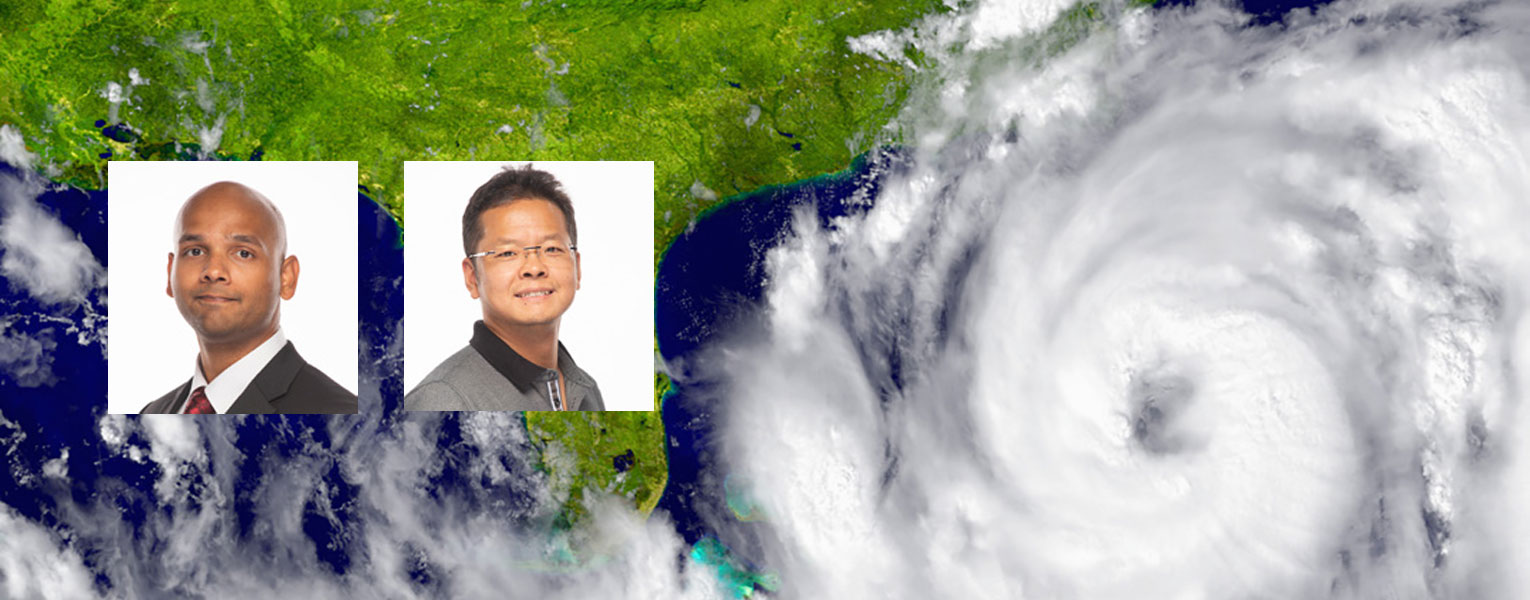6/5/2024
Florida Atlantic: Uncovering Extreme Weather Events
Fluid Dynamics and Deep Learning Could Explain Underlying Causes
Picture it – a life-threatening deluge deposits 20 inches of rainfall within a seven-hour period in the Fort Lauderdale area. While it sounds like a horror movie scene, the historic flash flood in April 2023 was very real, as it wreaked havoc across Fort Lauderdale, Dania Beach and other parts of Broward County. Aside from mass chaos, cars floating down main roadways and hundreds of people stranded, the aftermath of South Florida’s “100-year Flood” also shut down the Fort Lauderdale-Hollywood International Airport for days. Why did this happen?
Identifying the underlying cause of extreme weather events such as floods, heavy downpours and tornadoes is immensely difficult and can take a concerted effort by scientists over several decades to arrive at feasible physical explanations.
At the core of uncovering such extreme events is the physics of fluids – specifically turbulent flows, which exhibit a wide range of interesting behavior in time and space. In fluid dynamics, a turbulent flow refers to an irregular flow whereby eddies, swirls and flow instabilities occur.
Because of the random nature and irregularity of turbulent streams, they are notoriously difficult to understand or to apply order through equations. To address these challenges, researchers in Florida Atlantic’s College of Engineering and Computer Science leveraged a computervision deep learning technique and adapted it for nonlinear analysis of extreme events in wall-bounded turbulent flows, which are widespread in numerous physics and engineering applications, and also impact wind and hydrokinetic energy.
Results, published in the journal Physical Review Fluids, demonstrate that the technique the researchers employed can be invaluable for accurately identifying the sources of extreme events in a completely data-driven manner. And the framework they formulated is general enough to be applied to other scientific domains, where the dynamics governing the evolution of critical phenomena may not be known beforehand.
Siddhartha Verma, Ph.D., assistant professor in the Department of Ocean and Mechanical Engineering, was the senior author of the study and Xingquan (Hill) Zhu, Ph.D., professor in the Department of Electrical Engineering and Computer Science, was co-author.
If you would like more information, please contact us at dorcommunications@fau.edu.


Presenter(s), Siddhartha Verma, Ph.D.
Department of Ocean and Mechanical Engineering
Watch video
